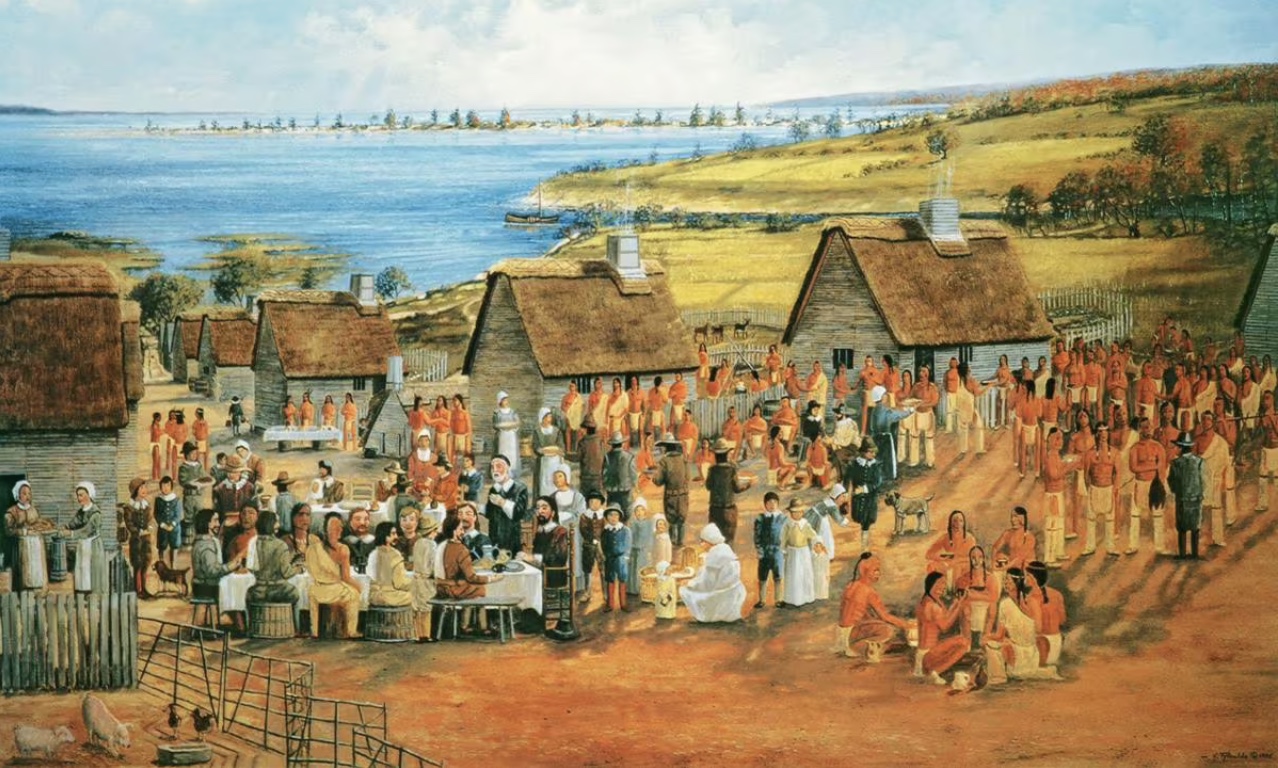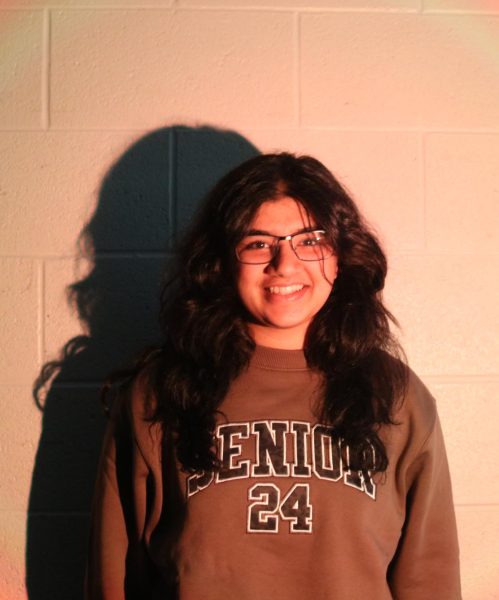As Canadians wrap up their festivities and Americans begin their meticulous planning, the holiday of Thanksgiving crawls closer and closer to the forefront of everyone’s mind. Who’s coming? What’s for dinner? Do we really want to cook an entire turkey this year? Questions asked while scrolling through Instagram or TikTok, past videos calling for justice for the Palestinians in Gaza and child laborers in the Congo.
Thanksgiving has always had a very tumultuous history. It began as a way for pilgrims in New England to give thanks to God for good harvests and plentiful food stores. However, The National Museum of the American Indian contributes this to the assistance of the local Wampanoag not, as the pilgrims believed, God or simply good luck. In American history, Thanksgiving celebrations are based off of the feast shared between the Wampanoag and the pilgrims in 1621. The two parties in attendance are the only things the majority of the research agrees on.
Britannica lays out the feast of Thanksgiving as the following, “Since Plymouth had few buildings and manufactured goods, most people ate outside while sitting on the ground or on barrels with plates on their laps. The men fired guns, ran races, and drank liquor, struggling to speak in broken English and Wampanoag.”
Even elementary schools push the narrative of a friendly feast. Children make pilgrim hats and Native American headdresses while posing for pictures with teepees in the background, gross misinterpretations of what the Wampanoag would’ve actually worn and lived in.
While The National Museum of the American Indian does not dispute the activities done during the feast of 1621 as laid out by Britannica, the museum stresses the importance of acknowledging that the feast was not an accident where the Wampanoag wandered into the Plymouth settlement. The feast was a deliberate act of fostering diplomacy, peace and respecting alliances. It was a failed attempt, however, as the pilgrims of Plymouth would encroach their way into Wampanoag land and beyond.
In an interview with The Washington Post, Darius Coombs, a Wampanoag cultural outreach coordinator, said, “For us, Thanksgiving kicked off colonization. Our lives changed dramatically. It brought disease, servitude and so many things that weren’t good for Wampanoags and other Indigenous cultures.” Indigenous tribes to North America have taken to celebrating Thanksgiving as another holiday, the National Day of Mourning.
The holiday was only made official over two hundred years later on Nov. 26 of 1863 after President Abraham Lincoln demanded a ceasefire during the Civil War. Prior to this, Thanksgiving was a primarily New England tradition. It was only precedent that allowed the holiday to become a post-Civil War celebration.
Both of Thanksgiving’s “origin stories” are written in blood. Post-Civil War, the holiday became an excuse for blatant nationalism as Europeans immigrated into the country and Native Americans were pushed out west. Its celebration has received scrutiny from multiple groups, with the Wampanoag and other Indigenous groups being the loudest voices.
Justification, however, finds itself in the word “family.” It’s a time to gather, break or mend relationships. The feast doesn’t actually mean to celebrate genocide; it’s only an excuse to get the family together. Or, Thanksgiving is the most convenient setting to stuff yourself up with food before camping outside Oakland Mall for Black Friday sales. But then, of course, there’s the moral question: is it possible to celebrate family on a day where afterward thousands of other families were massacred?
No.
Not only is it grossly cruel to celebrate what others lost so violently on the day the tragedy occurred, calls for a ceasefire or humanitarian intervention elsewhere ring hollow when the current precedent is set at Level We Will Celebrate Where You Mourn. If that sounds like an exaggeration, Americans only have to look at the turkey that they have prepared in the oven and the foliage-covered table mat.
Kisha James, a woman of the Wampanoag tribe, asks, “Try to divorce your Thanksgiving celebrations from the Thanksgiving mythology. No more pilgrims and Indians, no more teaching your children about the first Thanksgiving as we learn it in public school where it was a friendly meal.”
If Americans would like to help abroad, we need to start looking inward. Liberation for the Palestinians in Gaza is not a separate cause from the Indigenous peoples of North America. As we preserve acts of Palestinian resistance through keffiyehs and watermelon iconography, we should preserve the real histories of the people who lived on this land before us. For a holiday focused on tradition and family, we ought to do justice to the non-colonial party present at the feast of 1621.
In the checkout line, take out the frozen turkey and cornbread mix. It can wait for the winter holidays.


